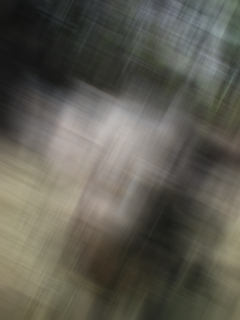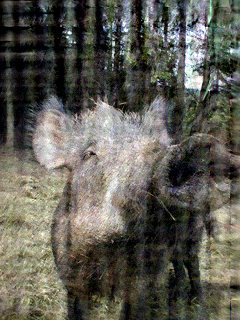
Deconvolution Methods in Image Processing
Summer Term 2006
Home
About Us
People
Teaching
Research
Publications
Awards
Links
Contact
Internal
Deconvolution Methods in Image Processing
Dr. Martin Welk,
Prof. Dr. Joachim Weickert
(welk@mia.uni-saarland.de)
Summer 2006
Seminar (2h)
Important Dates – Description – Administrative details – Overview of Topics
First meeting:
Monday, February 13, 2006, 16:15h (4:15 p.m.), Bld. E11, room 306
Sign-up deadline: Friday, February 10, 2006 (elapsed). No free capacity is left in this seminar.
Regular meetings during summer term 2006:
Wednesdays, 16:15h (4:15 p.m.), Bld. E11, room 306
No meeting on June 7!
Please direct all organisatorial requests to Martin Welk.
 |
 |
Contents: In the acquisition of images, blurring is a ubiquitous phenomenon. An important type of blurring is mathematically described by convolution of a sharp image with a point-spread function.
The sharpening of so degraded images, deconvolution, is an ill-posed and thus difficult problem in image processing. A large variety of deconvolution methods have been developed during the last decades, which differ in their assumptions and which offer different advantages and disadvantages.
In this seminar, an overview over a broad range of deconvolution methods will be given, stretching from direct inversion approaches via iterative solution of large systems of equations to variational models combining deconvolution with other tasks like segmentation or image completion (inpainting).
Prerequisites: The seminar is designed for graduate students (i.e. advanced Bachelor, Master, and post-Vordiplom) of computer science or mathematics. For most topics, completed MfI courses are sufficient.
Language: Understanding scientific text in English is indispensable. Talks and write-up can be in English or German.
Sign-up: closed. The deadline was February 10, 2006. No free capacity is left.
Sessions:
The initial meeting took place on
Monday, February 13, 2006, 16:15h (4:15 p.m.), Bld. E11, room 306.
Regular sessions will be during the summer term on
Wednesdays, 16:15h (4:15 p.m.), Bld. E11, room 306.
The date of the first meeting will be communicated by e-mail.
During that meeting, the further schedule will be determined.
Participants who are hindered to attend a meeting for substantial reasons
should notify M. Welk in advance by e-mail.
Requirements for successful participation («Schein»): regular attendance, talk, write-up
Please note that the presentation dates given here are preliminary and subject to change.
Martin Welk / April 5–July 31, 2006
MIA Group
©2001-2023
The author is not
responsible for
the content of
external pages.
Imprint -
Data protection